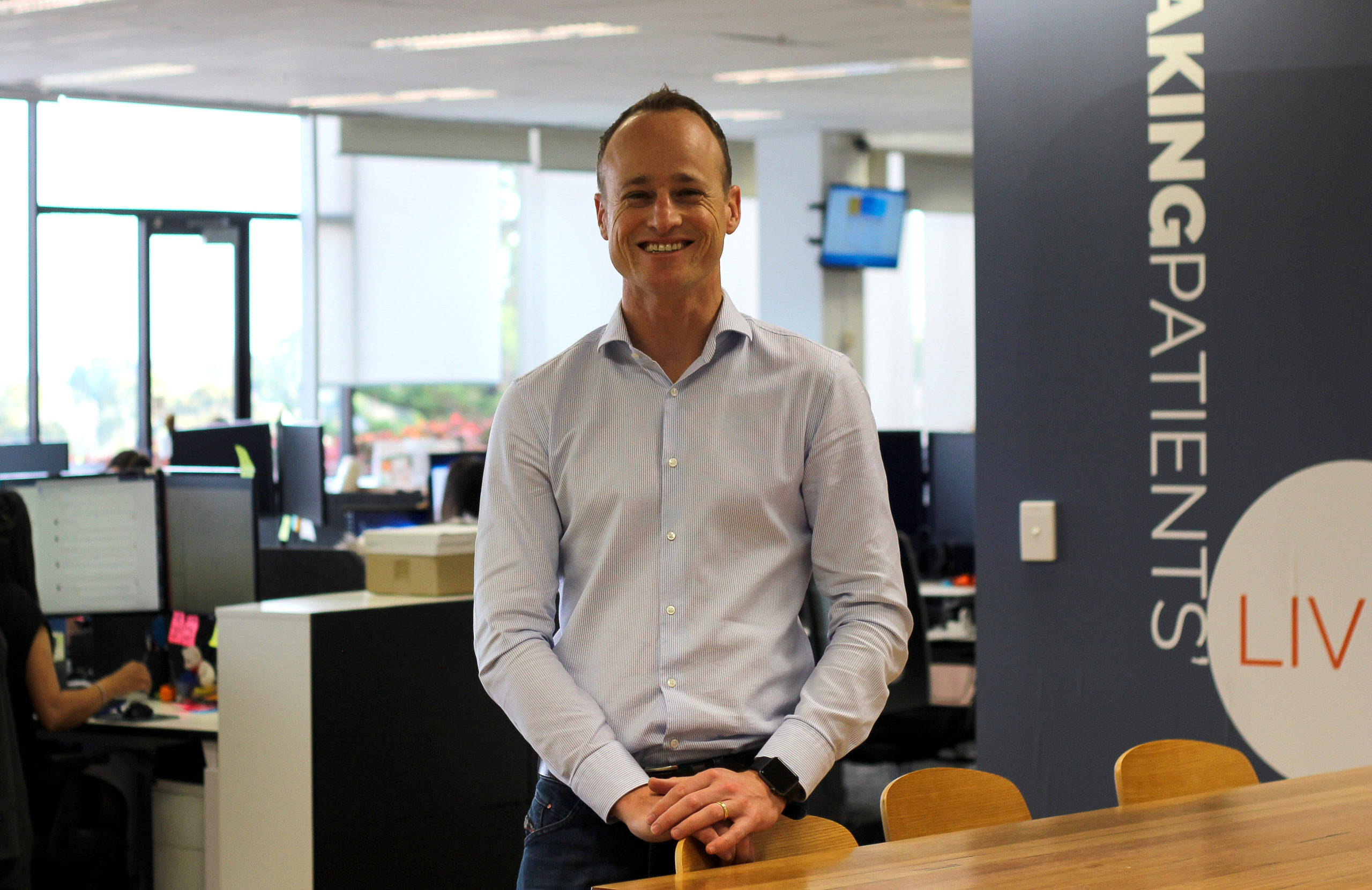While many businesses have been forced to close as part of social distancing measures to reduce the risk of coronavirus, one entrepreneur’s poison is another’s meat and alongside covering how to get through the next six months, and detailing what’s happening in small business land in our series “From The Frontline“, as well as recognising and celebrating companies succeeding in such difficult times, with the series Bright Spots.
If you want to share your own story about the good news in you startup, drop us an email at startupdaily[at]pinstripemedia.com.au
Today we talk to medtech startup MedAdvisor, which is helping transform the health sector with its digital platform.
There’s no shortage on irony in the fact that the place you’re most likely to find the fax machine is somewhere most people associate with cutting edge technology – healthcare.
The fax, technology that’s nearly 180-years-old (remember Scottish inventor Alexander Bain in 1843 for your next trivia night) still has a stronghold in pharmacies, doctor’s surgeries and hospitals, somehow managing to survive alongside MRIs and experimental drugs.
But with COVID-19 forcing changes to the way we work differently, and the health sector on the frontline of the response to the pandemic, Robert Read, CEO of ASX-listed medtech startup MedAdvisor, has been at the forefront of an accelerated the shift to digital health that otherwise would have taken five years or more.
For Read, it’s a matter of cometh the hour, cometh the startup.
“Consumers, or in the healthcare sector, patients, expect to be able to access essential services online – it’s something MedAdvisor has been working towards for many years,” he said.
MedAdvisor is the technology behind 60% of the country’s pharmacies and three weeks ago, announced it was fast-tracking plans to launch an ‘Uber’ for pharmacy delivery services.
MedAdvisor’s added around 200,000 patients to its platform the March quarter, taking the total connected patients to 1.5 million.
As an insight into how rapid that growth it, it took six years to reach 1 million digitally connected patients, then two years for then next 500,000, with 40% of those people in the last three months.
Read acknowledges COVID-19 has been good for business, but it also required MedAdvisor to be agile in response.
“We’ve worked hard to broaden our services to include telehealth and fast-tracked the rollout of our on-demand home delivery services which are now live in Sydney, Melbourne and Brisbane,” he said.
Since launching delivery last month, nearly 1000 pharmacies are now offering the functionality to MedAdvisor app patients, with more than 4000 delivery requests made by patients, and 11,000+ items ordered.
MedAdvisor has also seen significant growth in pharmacies offering Pay in Advance, a method of contactless payment for its customers. It has grown from ~11% of the MedAdvisor pharmacy network to ~80%.
This chart shows that growth:
Read believes the trends he’s seeing now will be lasting changes for both his company and the wider health sector.
“In many respects, the healthcare industry is the last to adopt these changes. Consumers are demanding online solutions when they go to a doctor or pharmacist,” he said.
“Healthcare providers are finally adopting technology and it will be hard to roll it back when we emerge from our COVID-19 lockdown.”
NOW READ:
BRIGHT SPOTS: Coronavirus has made financial advisors an essential service once again
FROM THE FRONTLINE: How food startup Two Hands is responding to the coronavirus crisis
FROM THE FRONTLINE: How startups are tackling the coronavirus crisis




















Trending
Daily startup news and insights, delivered to your inbox.